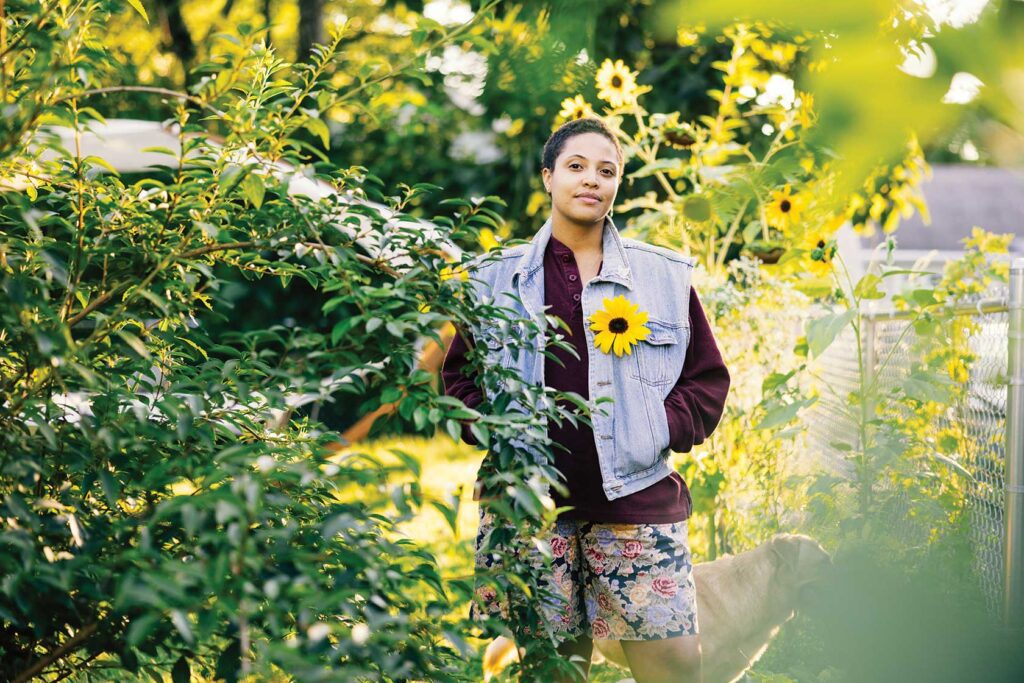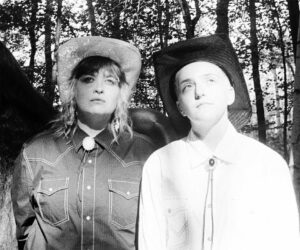Queer as folk: Club Passim presents its inaugural Pride celebration
Black-multiracial folk musician Naomi Westwater joins five others for night of in-the-round performancema

Naomi Westwater has always had a keen ear for music. The Cape Cod-born artist recalled expressing themself through song as soon as they could talk, bolstered by the positive reinforcement of those around them. From there, their path into singing and songwriting unfurled as they joined a school music program, partook in orchestra and choir, and even established bands.
Trained in musical theater and later in jazz, Westwater’s musicianship evolved to center around folk music when they found themself allured by the accessibility of the genre and inspired by the likes of Joni Mitchell and Laura Nyro.
Folk is the “music of the people, and a lot of the kind of messaging is what I was just drawn to,” said Westwater, who recently released “OBNTS,” a buoyant, summery single. “It’s more than just a genre. It is political in nature and really connects with the work that I’m doing.”
On June 22, Westwater will bring their bold sound to Club Passim during the Cambridge venue’s inaugural Pride Month celebration. Westwater and five other queer and transgender acts will take the stage starting at 8 p.m. with in-the-round style performances. In-the-round is a common format at Passim, said Maddy Simpson, the event’s curator.
Simpson, a singer-songwriter herself, had already worked alongside some of Passim’s event facilitators when she was tapped to organize a show for Pride Month. Given free rein, she selected her favorite queer and transgender folk musicians to play the show.

Sweet Petunia, queer alt-folk duo Madison Simpson and Mairead Guy. PHOTO: JJ GONSON
The lineup includes Westwater; singer and songwriter Anju; dulcimer player and guitarist Lee Zangari; country blues and ragtime guitar player Roman Barten-Sherman; multi-instrumentalist Jarsch; and alt-folk duo Sweet Petunia, made up of Simpson and Mairead Guy.
Simpson sees the forthcoming performance as “a celebration of folk music, of our identities, of our culture,” and hopes to make it an annual event. As she curated the show, she said, she focused on demonstrating “how queerness and folk musicianship can go hand in hand” and that folk music, a genre historically exclusive to one group of people, can yield togetherness.
“Being queer and being trans can be such an isolating experience,” Simpson said, “and it’s something that a lot of people have firsthand experience with … and using music as a tool for community is so important.”
Westwater, who is based in Brockton, is no stranger to Passim. They’ve long frequented the club as both an audience member and an open mic participant. For two years, they’ve also been part of Passim’s Folk Collective, a quarterly gathering of a dozen artists.
Westwater said they were happy to receive the invitation to perform during the celebration, particularly because being queer is a big part of who they are.
“I can’t divorce myself from my identity,” Westwater said, regarding how being a queer, Black-multiracial person impacts the music they make. Through songwriting, which creates space for introspection, they have reflected on racism in America and queer love, and they’re currently experimenting with writing songs about their Black and queer ancestors.
The typical absence of events like Passim’s Pride Month celebration signals to people that their identities need to be concealed or set aside, Westwater said, noting that during Passim’s night dedicated to queer and transgender voices, people will feel welcome to come as they are.
“Every space needs to be a little bit more aware and embracing of belonging and intersectionality, and we cannot leave our identities at the door, as audience members or as artists,” they said. Passim’s Pride Month celebration, they added, “allows both the artists and the audience to feel seen in their queerness and in their identity.”






